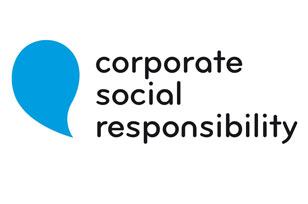 The idea of putting business and ethics together already sounds like it may have some controversial issues within the two terms. As it is said in one of our reading preps, most businesses incorporate ethics “to cover the view that the pursuit of profit is wicked and immoral”. As such, business leaders view Corporate Social Responsibility (CSR) as a core strategy and opportunity to gain competitive advantage through brand loyalty. Though strong brand loyalty can help a company withstand criticism and survive, to what extent should a company use its CSR to identify their brand?
The idea of putting business and ethics together already sounds like it may have some controversial issues within the two terms. As it is said in one of our reading preps, most businesses incorporate ethics “to cover the view that the pursuit of profit is wicked and immoral”. As such, business leaders view Corporate Social Responsibility (CSR) as a core strategy and opportunity to gain competitive advantage through brand loyalty. Though strong brand loyalty can help a company withstand criticism and survive, to what extent should a company use its CSR to identify their brand?
Once a company implements CSR, their costs might increase in order to fulfill the responsibilities they promise. For example, last year Oxfam reports several big multinational companies (Nestle, Coca Cola, etc.) who have failed to commit to their CSRs, such as paying adequate wages to workers. Therefore, using CSR to gain competitive advantage or brand loyalty is actually at the expense of their budget and public image. It is costly and it might lower their image if a company don’t commit to their CSR goals, especially if they want to identify themselves through ethical values to appeal to society. Nonetheless, giant multinational companies like Nestle seem to only experience criticism in the short run, which does not affect their long term sales, as news eventually subdue over time.
Source: http://www.theguardian.com/sustainable-business/oxfam-multinational-companies-failing-csr